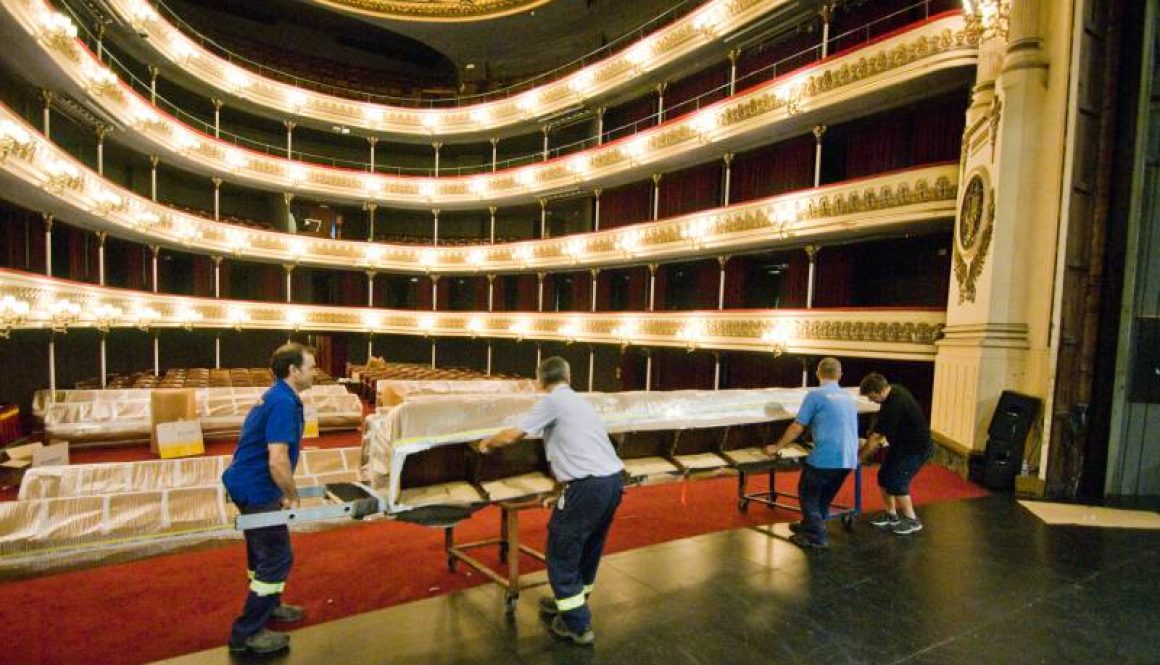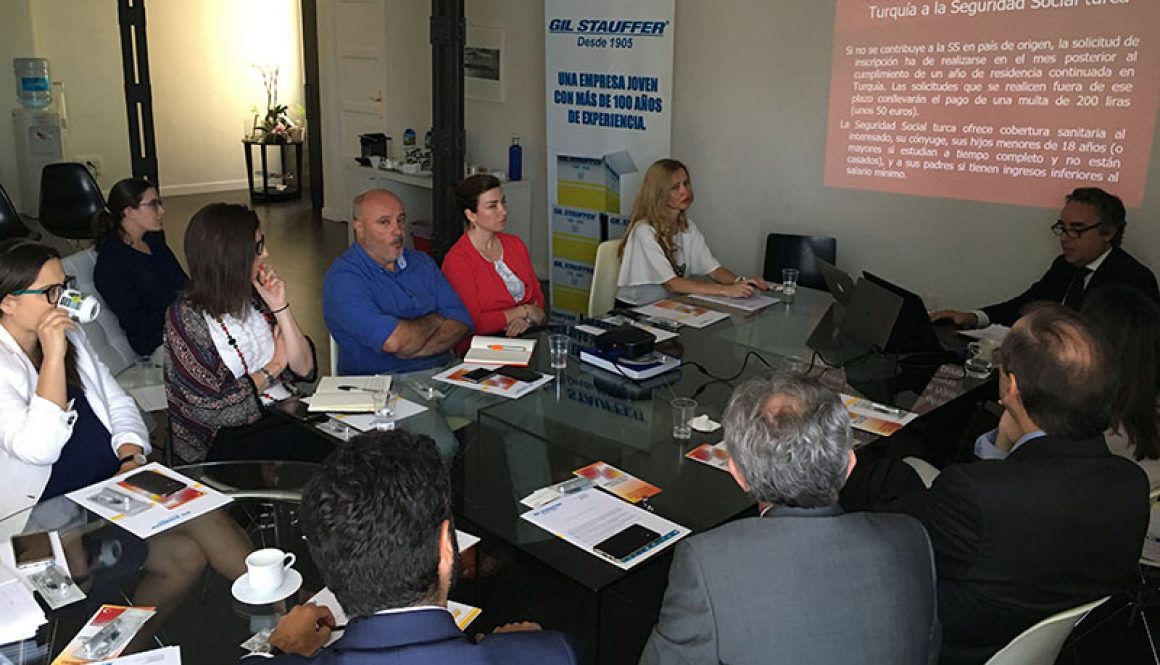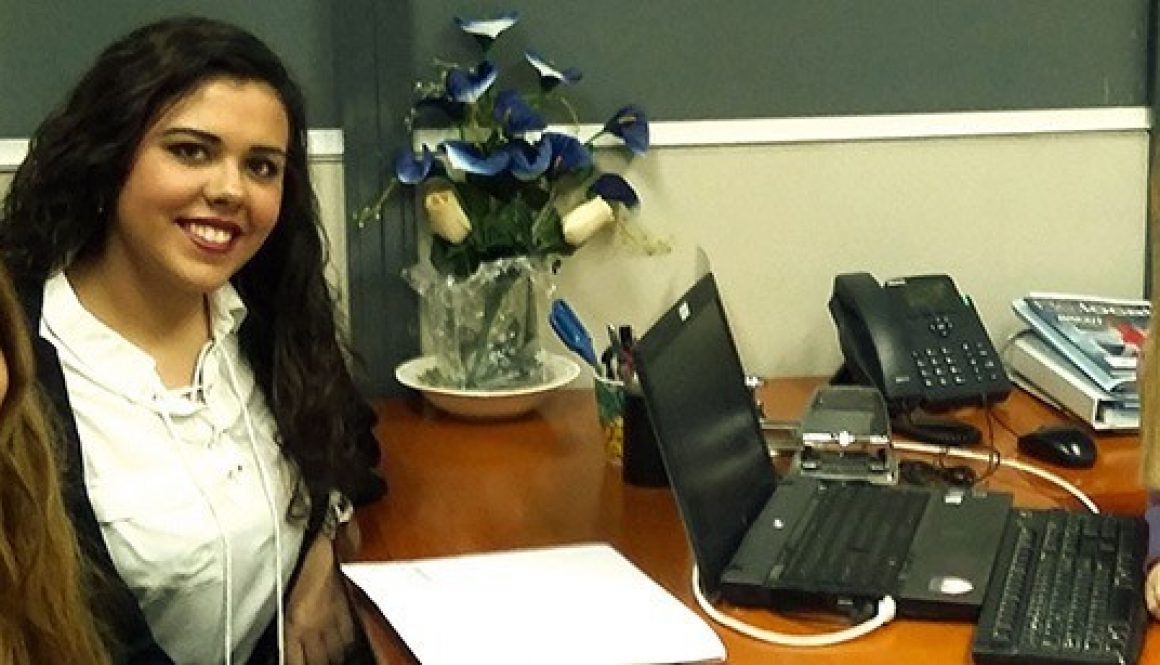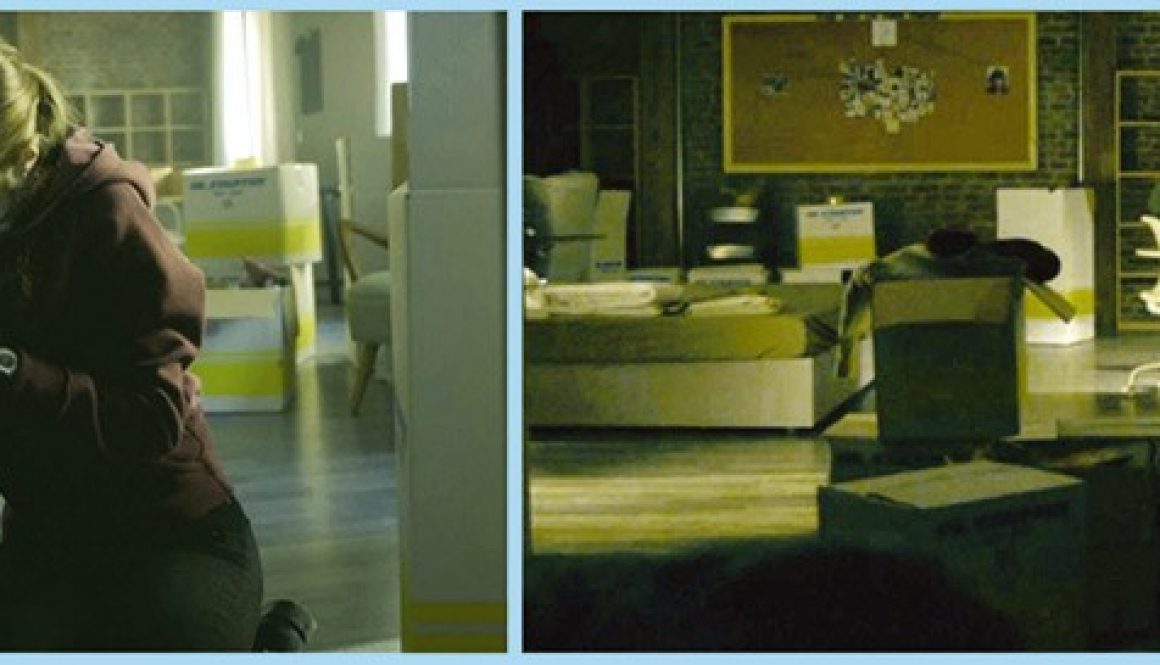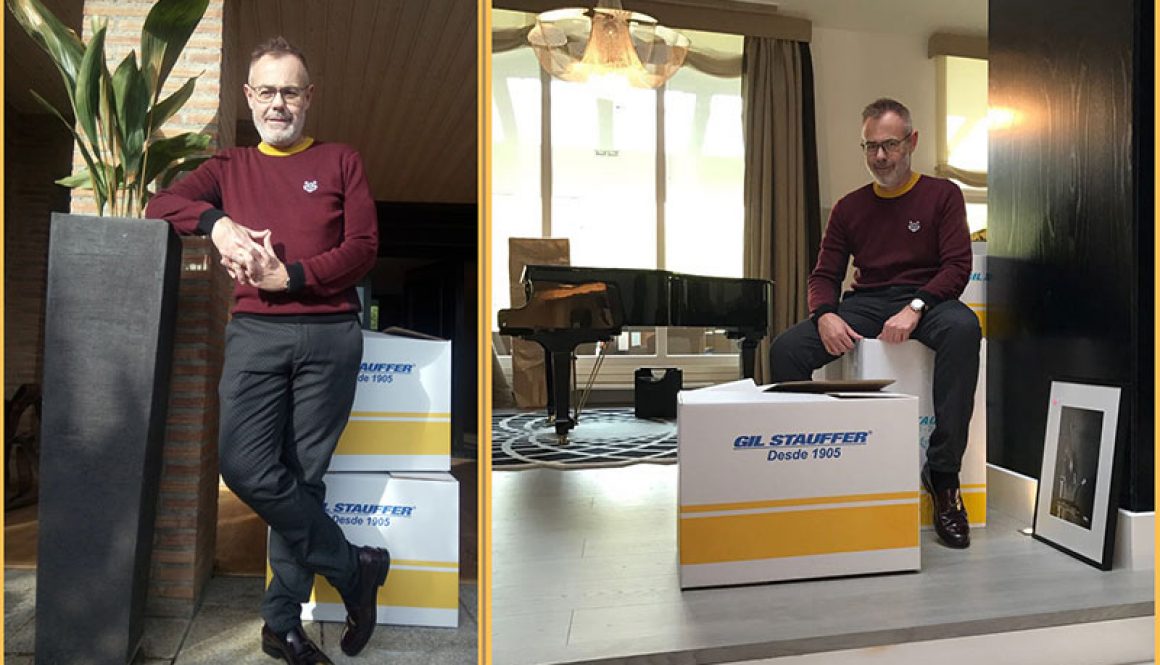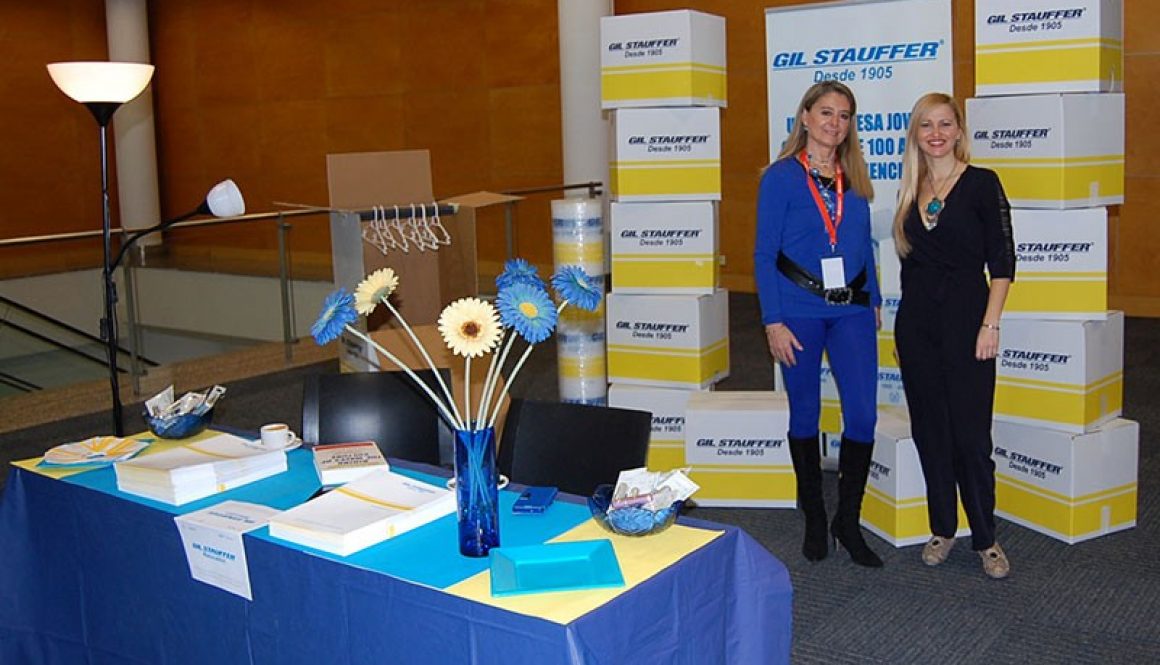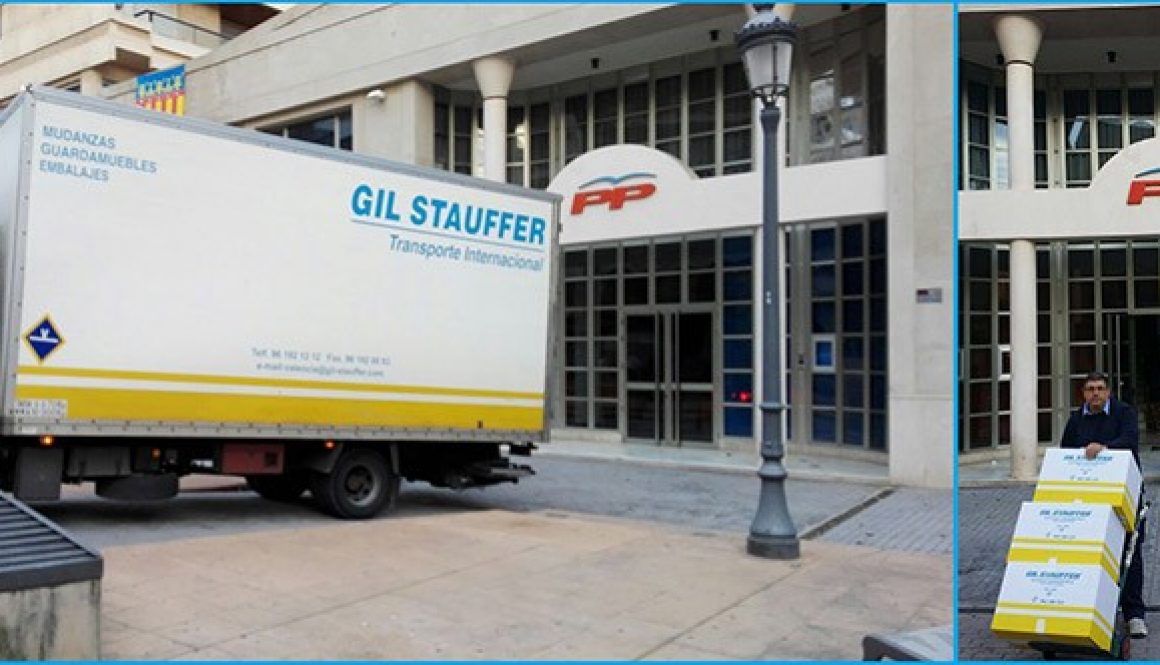23/02/2017
ESIC STUDENTS INTERVIEW CHARO ÁLVARO TO TALK ABOUT GIL STAUFFER'S MARKETING MODEL
Carmen Blázquez and Katalin Leturiondo, students of the First Degree in Marketing at ESICInterview with Charo Álvaro as Director of Communication and Marketing at Gil Stauffer.
We transcribe below this pleasant and relaxed interview with our thanks for having chosen us to carry out this interesting practical work:
-
What academic studies have you completed and what would you highlight from your professional career?
I did a degree in Information Science, Information Sciences, Information Science and JournalismI studied at the Complutense University of Madrid while I was working as a secretary in a packaging company. When I came into contact with the business world, I realised that I liked it a lot, so I ended up orienting my professional life in a hybrid of the two; that is, in the field of Communication and Marketing.
The bulk of my professional career has been spent in the following areas Gil Staufferbut if you wish, you can find more information in my LinkedIn profile
-
What do you see as the ideal profile of a marketing professional?
In addition to specific training, the first thing that any marketing professional must be clear about is that he or she should be a all-terrain because, normally, many different tasks have to be carried out. Then it depends on the specific position and the size of the company you work for, which, if it is larger, will have a more specific job in a specific department (for example: only working on climbing, etc.). posts daily on Facebook in the social media department of large multinationals). But, normally, a marketing manager in an SME has to carry out tasks and responsibilities that will always be much more diverse. That is to say, if the company is large, the work will certainly be more specific, but it is usual to have to know how to handle many tools and methods at the same time to cover and/or lead the various facets.
It is also necessary to be very creative and know how to work against the clockThe tasks that arise are often time-consuming and require a lot of mental agility, as well as execution. At the end of the day, it is all about inventing tools to sell more. In short, that is what marketing is all about.
But it is also necessary to have an analytical mind and playing with numbers in different contexts.
Another feature is that it must always be proactive peopleThe marketing professional has to give support and promotion to the commercial departments and that always requires a positive attitude.
It is also necessary to have a lot of patienceIt is usually an intermediate position and you have to know how to accept it. criticism from other professionals which can be at the top of the organisation chart, but also at the bottom.
It is very important to be in continuous trainingEverything changes very quickly, especially in this digital world in which we live today and in which it is necessary to improve the overall customer experience (in its online and offline aspects) facing the continuous technological innovations. Therefore, to be a good marketing professional you have to be constantly recycling yourself.
The languages are also very valuable, as we often have to attend customers, attend trade fairs, talk to partners (correspondents in our case), even know how to discern competitive issues, etc., and all of this in today's world of globalisation and internationalisation.
To be conclusive and try to reporting with data and statistics for other professionals to understand the various situations and/or aspects involved in selling more or less.
And all of the above implies that it is also necessary to be highly organised and methodical in many working procedures, otherwise it is very difficult to look at all aspects of marketing.
In short, it is necessary to know a little bit of everythingThe aim is to convey what is important and to develop promotional material with the aim of improving sales.
And a final important point is the image we project, that in the business environment we must show an image of a company that is presence as impeccable as possibleWe are the first business card of the company.
-
How do you plan your work?
My work, as I have said, is very varied and some aspects are quite automated and scheduled, such as, for example, the management of monthly and/or annual reports, studies of the various statistics, advertising campaigns, social media management, etc. But there is a lot of day-to-day work that simply cannot be planned because it comes up and has to be tackled, so I simply do it normally in an established order according to the priorities of the moment, i.e., I have to plan and schedule it, trying to manage time well.
-
Professional satisfaction and the areas of improvement you think you can make to improve your company.
For me the greatest personal satisfaction was to be able to experience a unique event that very few professionals have been able to experience: The Gil Stauffer centenarywhich was full of marketing actions. It was a hard season because we had to work a lot during the whole previous year, that same year (2005) and the following year as well. The commemorative party was in a Spanish restaurant in Washington and we brought flamenco artists and everything, so the public, who came from all over the world, was delighted. But there were also many other events related to the centenary.
Then there are many things that bring personal satisfaction even though they take a lot of work, for example, my book ".Boxes of lives"whose plot is based on invented stories related to Gil Stauffer's activity. And yet there are other actions that cost almost nothing to implement, but are much better received (e.g., the "Gil Stauffer" project), product placement in Big Brother 2).
But, in general, it is a very varied and rewarding job, because it areas for improvement are always being visualisedHowever, these depend, above all, on the budget available at the time.
-
Which companies do you think are currently performing good marketing practices? Do you offer such a service?
For me, the brand example par excellence in terms of marketing is Coca-Cola because it came onto the market 130 years ago and turned a brown, sugary, fizzy drink into a "the spark of life" and today it continues to be so and is, without doubt, a reference worldwide.
Then, in general, all the big brands are a model: Google, Apple, Samsung, Facebook, McDonald's, BMW, Ford, Nestlé, Danone, IKEA, Adidasbeauty brands such as Lancome or fashionable as Prada o Louis Vuitton and, of course, nowadays the Spanish ones Zara, Mercadona y El Corte Ingléseach in their own sector and taking into account that they develop different marketing strategies and styles.
We can't match these companies because the size is different, but we do a lot of very interesting things within the budget we have.
-
What advice would you give to a marketing student?
Fundamentally, to always try to comply with what I have detailed in point 2 and, in addition, to always try to comply with what I have detailed in point 2, work while enjoying what you do.
-
What is the portfolio of products/services offered by the company?
Our services are as follows:
- Local, national, island and international removals. That is, to and from anywhere in the world. And for both private users and companies (from their own offices or for transferring employees to other destinations).
- Relocationa service that complements the removals service. The clients are normally the Human Resources departments of multinationals or large companies who contract a global service whereby, in addition to the removal, work and residence permits, the search for housing, schools, gas and electricity supplies, etc. are managed.
- StorageA service that is equivalent to having a storage room but where everything is handled by our operators from our clients' homes to our facilities.
- LogisticsFor companies and usually under a master plan, we carry out studies and implementation of some facets of transport and logistics storage (e.g. publishing houses, IT equipment manufacturing companies, etc.).
- Custody of archived documentsWe hold large archives for companies that do not have enough space to keep the volume of archives required by law, etc. (e.g. insurance companies, banks, etc. that generate a lot of documentation and do not have the space to store this volume for the time required by law).
- Transport of works of artIt is a very specialised division in which, as the name suggests, what we do is transport works of art between museums, galleries, etc. and sometimes we also coordinate national and even international exhibitions.
-
What would be your distribution channels, even though we know that you are a transport company and not a product company?
Gil Stauffer works with branches in the main Spanish capitalsincluding the Balearic and Canary Islands, so that the various offices are distinct business cells working under the regulations and the know-how under the umbrella of the brand. In other words, we have a common line of work, although the branches have their own business identity. It is a business model similar to that of franchising.
Internationally, we work with correspondents. The best in each country and we exchange tonnage with them.
This would be a bit of an X-ray of our distribution channels, although they do not exist as such because we are a service company.
-
Regarding your pricing policy, do you prefer to offer a more expensive service with better means or do you also focus on the purchasing power of your customers and adapt to the budget the customer wants?
In terms of prices, we have a major controversy at present because they don't value the human effort of the artisan work we do and they try to get prices".low cost". The point is that it is impossible for us to give prices like those offered by other companies, perhaps because they are "pirate" companies, which do not have high costs to cover with registered employees, paying taxes, facilities, etc.
Gil Stauffer is generally regarded as an expensive company, but this is not true. It is a company that offers fair prices depending on the work that is done and taking into account that we have to pay for many things, but above all, for employees who do a job that is handcrafted and that, at the same time, is quite hard. But, of course, what we will never do is to charge lower prices for lower quality, because what is expected of us is to be able to offer the best possible service. good quality and good service And that comes at a cost, however tight the margins. Our target audience is mostly in the 35+ age bracket with medium/high purchasing power, so what they expect is good service. And also many companies hire our corporate services and the service must be impeccable, so the price cannot be too low.
There are other companies in this sector that even give prices over the phone, but then there are surprises.
-
What can you tell us about the internal communication policy?
With regard to the internal communicationWe have a "branches" channel, which works via email, but which is shared among all Gil Stauffer users, so that any issue that is considered to be of some importance is sent as a communiqué through this channel and reaches the entire organisation. In this way, specifically from my department, three or four issues are sent out communicated I have weekly meetings with topics that are almost always pleasant and that I know positively that the staff will like, which makes for a good working atmosphere.
Also, periodically, we hold meetings at the national level and this always contributes to improving human ties with the rest of the professionals, which is always good for "greasing" the driving force of the companyAfter all, we are, after all the people.
-
We would like to know more about your company's marketing strategy to reach your objectives: Do you carry out a marketing plan, do you analyse the market frequently in order to reach more people, do you set the objectives beforehand and do you analyse the strategies to be followed?
The term marketing in itself implies the intention to increase sales, and this in turn implies that we must always be on the lookout for ways to increase sales. measuring and analysing the market to take measures in one direction or the other. In this respect, statistics are helpful and serve as indicators for adjusting budget allocations and the Annual Marketing Plan. Then there are specific situations that require decisions to be taken on the spot, but a priori the planning is essential.
Normally, January is a month when many conclusions are drawn about what was invested in the previous year and many parameters are analysed to see the results of the different investments and the possible changes to be made in order to improve.
These last few years it has been very difficult because the investment in Communication and Marketing has slowed down, reducing the possibilities to promote the company, but there comes a time when everything is channelled again and now we are allocating 5% of the turnover to this department, which gives us a little more margin for brand promotion.
We outsource many facets because, after all, we do not have internal support for a large structure. Thus, we rely on external agencies and professionals specialised in different fields, and this also has to be taken into account when adjusting budget items.
In general, we try to do small things that, in the end, seem big. One example is the tactic of product placement we usually do in TV series and cinema films.
And of course, we try to meet targets on the basis of planning that we have previously carried out.
-
What is the digital environment in which you operate and do you make use of social media to reach more people?
The web is always a lot of work because you also have to be constantly on the lookout to make sure nothing goes wrong and search engines, in particular GoogleThe parameters are also increasing, e.g. for SEO, and you should always be aware of these things.
With regard to the social mediaWe have an elaborate protocol for managing them, which is quite extensive and which we also update on a regular basis. This is a facet of Marketing to which we attach great importance and, for this reason, we have a special protocol for its management.
-
As an international company, do you have any expansion plans?
Gil Stauffer is a company that has international character The idiosyncrasy of the services it has been providing since the 1950s, but we have also had our own delegations in cities such as Moscow, London, Lisbon, Coimbra, Brussels, Tangiers, etc., and we had a expansion plan a few years ago just before the crisis, when we had very positive forecasts, but unfortunately, the real estate crisis became generalised and put paid to our fantastic forecasts. However, we still have a delegation in Paris and we hope that, if everything goes back to normal, we will be able to resume international expansion, although we are present internationally through our correspondents, as I said before.
Since 1905, our greatest satisfaction has been your satisfaction.



